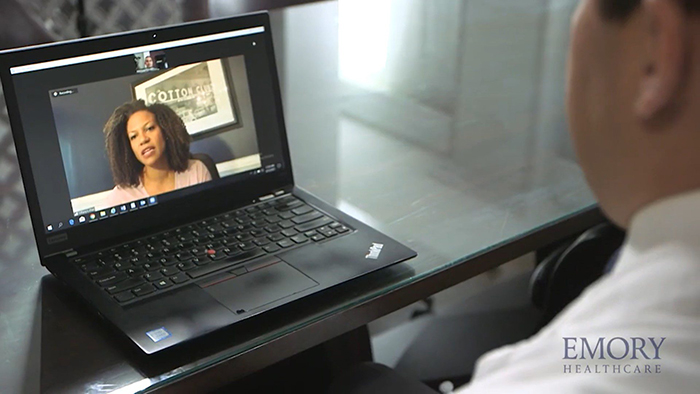Tiffany’s telehealth visits may have started during the COVID crisis when there was a need to socially distance, but she quickly realized Emory Connected Care’s value. Her doctors identified the cause of her stroke. And now, with treatment, she’s nearly back to her pre-stroke self. Telehealth follow-up visits are focused on monitoring her recovery and keeping her from having additional strokes in the future.
“It’s been super convenient because I’m not driving 45 minutes to an hour or having to park and go into the building,” she says.
What’s more, she’s been able to have her husband join her on her chats with Dr. Nahab. That was important, because after her stroke, she felt like her brain wasn’t working as quickly as usual. She found it helpful to have a second set of ears to hear what the doctor said and make sure she processed the information correctly.
At the time, due to COVID restrictions, only patients were allowed to attend in-person appointments. With Emory Connected Care, Tiffany’s husband could quickly jump on a call while at work, hear everything Dr. Nahab said to her and get back to his job with minimal disruption to his schedule.
“That is the one positive that I can say came out of the COVID pandemic,” says Dr. Nahab. “The tremendous work that Emory Healthcare did to really revamp how we provided care through telemedicine, not only just in-person. And it made a huge difference in terms of Tiffany’s care.”
For many people, it can be intimidating to try something new, especially if a computer is involved. But according to Tiffany, that shouldn’t hold anyone back.
“For patients who are kind of apprehensive about telehealth, I would say get over the fears of the technology, because it’s worth it, especially if your life is at all busy,” she says. “You can be on and off, and back to your life in no time.”
For more information about our Emory Connected Care telehealth services, visit emoryhealthcare.org/connectedcare or call 404-778-7777.




